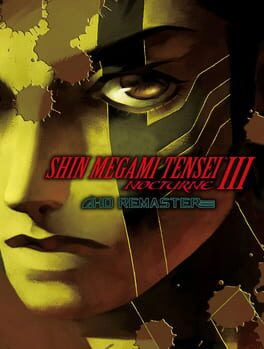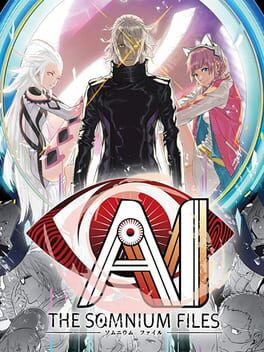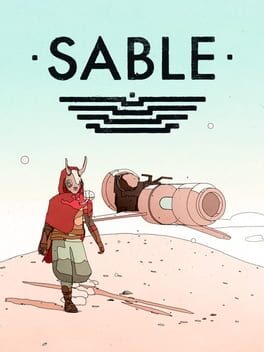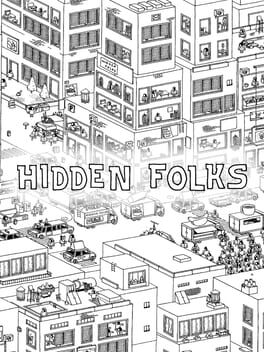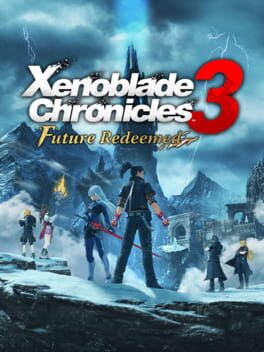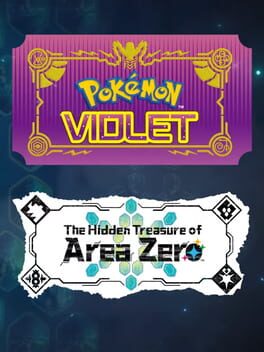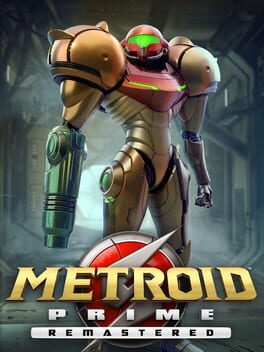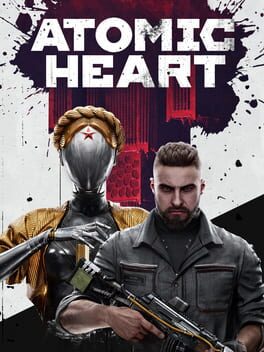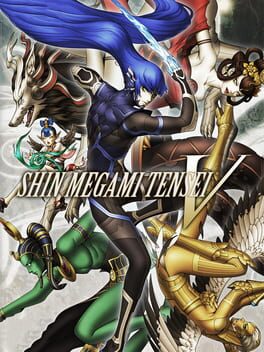beecass
my first mainline SMT game - the desolate atmosphere makes playing this in 2021, a year in which I have often felt like I am living alone on my own barren planet, extremely difficult at times! the game's inciting incident taking place in an empty hospital is very fitting for the cold tone the rest of the experience evokes, which feels sometimes at odds with the world created by the Conception, described in dialogue as one of action where passionately believed philosophies compete with each other by necessity. I've often thought about dropping it and coming back to it later to play something with a brighter view of the world, but the game being so good at just about everything that it does makes it very hard to put down. The turn press system is absolute genius and is executed with the kind of precision that makes this hold up years later while many other JRPGs trying to emulate it have come and gone
the knowledge that the soundtrack exists somewhere else in the world in a form that's not total shit and it isn't included here drives me up the wall
the knowledge that the soundtrack exists somewhere else in the world in a form that's not total shit and it isn't included here drives me up the wall
2021
2017
Feels like fanfiction of itself! I thought it was great while at the same time being extremely stupid and just sort of playing the hits in a way the base game saved until the very end. Extremely funny that they tried to cram a whole Xenoblade’s worth of RPG progression into 20 hours because at every single moment a number is going up somewhere or a new feature is being unlocked. Imagine one of those tiktoks where someone is playing subway surfer while in another window a child is explaining the plot of sword art online. Riku is there
This review contains spoilers
My first Armored Core game, and I definitely get it now. Demanding, dense, creative, relentless. As a Gunpla person, customising your little guy and making custom decals hit all the same good spots in my brain, and then actually putting your build through its paces and finding out the ways you like to play is another joyful process in itself. Storming through levels and dancing around bosses in an engine of death you’ve designed yourself gives you a sense of empowerment that other action games can only dream of - this is the product of a team at the peak of their craft. Every movement you make and attack you connect feels imbued with the perfect amount of weight, and it’s all in service of making you feel like the sickest cunt alive.
The rigour required from the player isn’t quite met by the game on all occasions - a few big encounters are a bit janky or feel inconsistent. In un-walled arenas, bosses will sometimes move out into areas outside of the combat zone where they can still act, while you’re left to wait around like a dipshit for them to come back so you can continue playing the video game. The camera will freak out a little bit in the more demanding fast paced encounters or against big foes, which is especially problematic if you’re playing with a close range build. After I took down the game’s first big skill check I needed to lay down because I was intensely motion sick - an experience I’ve only had playing Gravity Rush 2 in a darkened room. As such, few of the early bosses are maybe a little bit overtuned to require almost too much precision from the player - some definitely felt like they were designed to be tackled again with a late-game build for the S-Rank, and I honestly have no idea what the balancing solution for this is! It’s awesome to roll up on an old progress wall with a refined build and just completely melt them, but during my first run through the early game it often felt like every boss had way too much HP and meant you had to play the game with an athlete’s discipline to avoid a fuckup that would wipe out ten minutes of progress. Some of these early encounters where your vocabulary is a bit more limited than it will be later in the game sometimes felt like tests of patience rather than skill - you’re punished often maybe too harshly for sub-optimal play while you’re still learning the ropes. I also never really liked having to sell all my shit to afford a new toy to play with in the early chapters, as I feel the game truly shines when you have a couple of different ACs in the holster ready to tackle the unique demands of a new mission. The balance issues also skew wildly in the other direction from about the halfway point onwards, and a couple of fights that narratively should be push and pull battles are over before they can really show off what they’ve got to offer. There’s a few bosses and encounters in the closing chapters which absolutely rip and feel almost perfectly balanced - the final boss of the route I took was absolutely exhilarating even if it demanded a kind of mastery of camera control reserved only for true video game psychopaths.
As a newcomer to the series, I found it extremely interesting that the game chose to show no human faces or bodies at all outside of marketing materials - this is definitely in keeping with the game’s view that capitalism is dehumanising by design, but my personal favourite moments in mecha anime have always been when there is a show of contrast between the human body and the weapons made in their image. With From’s newly honed skills since the last Armored Core at depicting brutal human violence, I expected moments like the cockpit of the Kampfer riddled with bullets and blood, Noa emptying a shotgun into the runaway TYPE-0, Guld’s body caving in against the weight of g-forces - but in the world of Fires of Rubicon, bodies are unimportant, even unnecessary. There is no moment of clarity where the true cost of the violence you enact is weighed in blood. The game is more interested cultivating a creeping realisation that death is this world is devoid of heroics or tragedy - it’s just busywork. It’s a strikingly minimalist approach to the subject matter when all other parts of the game are about spectacle, and I don’t think it really works all of the time because said busywork of corporate murder is really fun! Every time the game took a moment to remind me that the things I were doing were ethically dubious, I didn’t really give a shit because I looked like a total baller doing it - I dismantled V.VII Swinburne in like thirty seconds and I’d do it all over again even if the magic woman who lives in my head tries to make me feel weird about it!
The core story of Coral and its supernatural abilities is less narratively compelling than the real world costs of conflicts over resources, and the notes sketched in Rubicon’s margins - of a skeleton being picked clean long after the real meat is gone - is much more fertile ground for expressing the gameplay’s themes of alienation and powerlessness than what we actually textually get by the game’s conclusion. The huge swings and setpieces were awe-inspiring, but are often morally uncomplicated in the ways most of the game is not. If Fires of Rubicon is to get a For Answer or Verdict Day equivalent, I’d really like to see it focused on a hyper-regional quagmire conflict where the largely absent non-corporate forces present in the world are maybe given a bit more to do. The world on show here is compelling enough that I’d like to see some more visible contrast between those who have skin in the game and those who order the impersonal deaths of thousands - the Rubicon Liberation front don’t really have any ideology to speak of, and we don’t get much of an indication of what they’re actually fighting for other than an amorphous idea of freedom from the corporations on the planet. Any conversation about what it means to actually live in the game’s capitalist dystopia takes a backseat to the dilemma of what humanity should do with Coral, which I believe is less interesting than unpacking the material circumstances of existing in a failed state at the whims of corporate interests. “What if fossil fuels were people” is a weird wrinkle to add to a world that’s so focused on the inherent inhumanity of capital, and I’m not sure it really works with the game’s suggestions that the mere act of survival in this unending circus of death requires you to be basically without ideology. The choice offered to you at the end of the game - allow Coral to continue to exist and maybe become something more, or burn it all to the ground - feels like too huge a shift in the setting to be offered to the player when everything else about the game has constantly stressed that the manmade systems of the world are designed on purpose to be so labyrinthine and contradictory in order to alienate the worker from the real consequences of their labor. The idea that the fate of the setting depends on the beliefs of one individual just doesn’t really make sense to me in the world that they set up in the early chapters, where the actions of lone heroes are impotent and meaningless.
Basically perfect otherwise, wake da dawg up‼️🥵🔥
The rigour required from the player isn’t quite met by the game on all occasions - a few big encounters are a bit janky or feel inconsistent. In un-walled arenas, bosses will sometimes move out into areas outside of the combat zone where they can still act, while you’re left to wait around like a dipshit for them to come back so you can continue playing the video game. The camera will freak out a little bit in the more demanding fast paced encounters or against big foes, which is especially problematic if you’re playing with a close range build. After I took down the game’s first big skill check I needed to lay down because I was intensely motion sick - an experience I’ve only had playing Gravity Rush 2 in a darkened room. As such, few of the early bosses are maybe a little bit overtuned to require almost too much precision from the player - some definitely felt like they were designed to be tackled again with a late-game build for the S-Rank, and I honestly have no idea what the balancing solution for this is! It’s awesome to roll up on an old progress wall with a refined build and just completely melt them, but during my first run through the early game it often felt like every boss had way too much HP and meant you had to play the game with an athlete’s discipline to avoid a fuckup that would wipe out ten minutes of progress. Some of these early encounters where your vocabulary is a bit more limited than it will be later in the game sometimes felt like tests of patience rather than skill - you’re punished often maybe too harshly for sub-optimal play while you’re still learning the ropes. I also never really liked having to sell all my shit to afford a new toy to play with in the early chapters, as I feel the game truly shines when you have a couple of different ACs in the holster ready to tackle the unique demands of a new mission. The balance issues also skew wildly in the other direction from about the halfway point onwards, and a couple of fights that narratively should be push and pull battles are over before they can really show off what they’ve got to offer. There’s a few bosses and encounters in the closing chapters which absolutely rip and feel almost perfectly balanced - the final boss of the route I took was absolutely exhilarating even if it demanded a kind of mastery of camera control reserved only for true video game psychopaths.
As a newcomer to the series, I found it extremely interesting that the game chose to show no human faces or bodies at all outside of marketing materials - this is definitely in keeping with the game’s view that capitalism is dehumanising by design, but my personal favourite moments in mecha anime have always been when there is a show of contrast between the human body and the weapons made in their image. With From’s newly honed skills since the last Armored Core at depicting brutal human violence, I expected moments like the cockpit of the Kampfer riddled with bullets and blood, Noa emptying a shotgun into the runaway TYPE-0, Guld’s body caving in against the weight of g-forces - but in the world of Fires of Rubicon, bodies are unimportant, even unnecessary. There is no moment of clarity where the true cost of the violence you enact is weighed in blood. The game is more interested cultivating a creeping realisation that death is this world is devoid of heroics or tragedy - it’s just busywork. It’s a strikingly minimalist approach to the subject matter when all other parts of the game are about spectacle, and I don’t think it really works all of the time because said busywork of corporate murder is really fun! Every time the game took a moment to remind me that the things I were doing were ethically dubious, I didn’t really give a shit because I looked like a total baller doing it - I dismantled V.VII Swinburne in like thirty seconds and I’d do it all over again even if the magic woman who lives in my head tries to make me feel weird about it!
The core story of Coral and its supernatural abilities is less narratively compelling than the real world costs of conflicts over resources, and the notes sketched in Rubicon’s margins - of a skeleton being picked clean long after the real meat is gone - is much more fertile ground for expressing the gameplay’s themes of alienation and powerlessness than what we actually textually get by the game’s conclusion. The huge swings and setpieces were awe-inspiring, but are often morally uncomplicated in the ways most of the game is not. If Fires of Rubicon is to get a For Answer or Verdict Day equivalent, I’d really like to see it focused on a hyper-regional quagmire conflict where the largely absent non-corporate forces present in the world are maybe given a bit more to do. The world on show here is compelling enough that I’d like to see some more visible contrast between those who have skin in the game and those who order the impersonal deaths of thousands - the Rubicon Liberation front don’t really have any ideology to speak of, and we don’t get much of an indication of what they’re actually fighting for other than an amorphous idea of freedom from the corporations on the planet. Any conversation about what it means to actually live in the game’s capitalist dystopia takes a backseat to the dilemma of what humanity should do with Coral, which I believe is less interesting than unpacking the material circumstances of existing in a failed state at the whims of corporate interests. “What if fossil fuels were people” is a weird wrinkle to add to a world that’s so focused on the inherent inhumanity of capital, and I’m not sure it really works with the game’s suggestions that the mere act of survival in this unending circus of death requires you to be basically without ideology. The choice offered to you at the end of the game - allow Coral to continue to exist and maybe become something more, or burn it all to the ground - feels like too huge a shift in the setting to be offered to the player when everything else about the game has constantly stressed that the manmade systems of the world are designed on purpose to be so labyrinthine and contradictory in order to alienate the worker from the real consequences of their labor. The idea that the fate of the setting depends on the beliefs of one individual just doesn’t really make sense to me in the world that they set up in the early chapters, where the actions of lone heroes are impotent and meaningless.
Basically perfect otherwise, wake da dawg up‼️🥵🔥
2023
2020
Picked this up after hearing “Cyberpunk is good now” and hey, it is! It probably was always at least a little bit good, but the extra time in the oven has made it into something pretty special. Does the eventual arrival of a genuinely compelling piece of art retroactively correct the way the people responsible for creating this thing have been treated by their employers? Probably not! My ideal world for artists and technical staff is probably one where less games like this get made, but this is maybe the best case scenario for what a gigantic AAA game like this looks like. I’ve got nothing to really add that hasn’t been articulated better by someone else over the last three years, but my really complicated feelings about this thing and the way it was made have coalesced mostly into positivity.
I played this after falling off Starfield - a game which made me wonder if I just disliked big-huge immersive RPGs and they just weren’t for me anymore - and I ended up falling in love pretty much immediately. They’re very different beasts, but I really prefer the density and friction of Cyberpunk’s approach to this type of game compared to Starfield’s compartmentalised slippery procgen. Night City feels big, but most importantly, curated - even small encounters and sidequests feel imbued with intention. The microstories on offer can vary wildly in quality, but in each one you can feel the touch of a human’s fingerprints.
Unionise your workplace!
I played this after falling off Starfield - a game which made me wonder if I just disliked big-huge immersive RPGs and they just weren’t for me anymore - and I ended up falling in love pretty much immediately. They’re very different beasts, but I really prefer the density and friction of Cyberpunk’s approach to this type of game compared to Starfield’s compartmentalised slippery procgen. Night City feels big, but most importantly, curated - even small encounters and sidequests feel imbued with intention. The microstories on offer can vary wildly in quality, but in each one you can feel the touch of a human’s fingerprints.
Unionise your workplace!
After rolling credits on this and playing the epilogue, I find it weird that they even called this The Hidden Treasure of Area Zero in the first place - I really enjoyed the last act of Scarlet & Violet (even if I thought getting there was kind of a slog), and the DLC doesn’t really do anything with the interesting and weird stuff the game starts dropping on you in its last couple of hours. What you get instead is pretty compelling in its own right though, and the core characters that are introduced throughout the two new chunks of game are so full of personality and love that it’s hard not to get caught up in a package that’s otherwise just fine.
Kitakami and Blueberry Academy are much fuller and better realised than Paldea, but the environment design is still the same kind of weirdly frictionless and formless slop that makes it really hard to ever feel like you’re on an adventure. The Pokémon battles in The Indigo Disk are genuinely challenging and dynamic, maybe the most fun the series has ever been - but this is largely because they’re centred around Double Battles instead of the usual Singles format. The more interesting and strategic demands of the doubles format unfortunately brought to mind a lot of the weaknesses of the legacy core mechanics and math happening behind the scenes which has stayed largely untouched since 2003 - why can’t the game as normal be this fun? For everything neat the DLC does, the bad bones of the base game exert their presence at every moment - there’s mostly the same good things and bad things that there were in the core game at launch, so if you already thought this sucked there’s probably nothing here to convince you otherwise. I will still buy the next one without question because I am a horrible little hog snort sniff slorp
Kitakami and Blueberry Academy are much fuller and better realised than Paldea, but the environment design is still the same kind of weirdly frictionless and formless slop that makes it really hard to ever feel like you’re on an adventure. The Pokémon battles in The Indigo Disk are genuinely challenging and dynamic, maybe the most fun the series has ever been - but this is largely because they’re centred around Double Battles instead of the usual Singles format. The more interesting and strategic demands of the doubles format unfortunately brought to mind a lot of the weaknesses of the legacy core mechanics and math happening behind the scenes which has stayed largely untouched since 2003 - why can’t the game as normal be this fun? For everything neat the DLC does, the bad bones of the base game exert their presence at every moment - there’s mostly the same good things and bad things that there were in the core game at launch, so if you already thought this sucked there’s probably nothing here to convince you otherwise. I will still buy the next one without question because I am a horrible little hog snort sniff slorp
Played this game for the first time with the remaster - a heap of praise should go to how good this thing looks and runs at a time in the switch’s lifecycle where new games are starting to strain against the limits of the hardware. Putting it side by side with the original after playing it for a bit I was struck by how much care went into making the remaster look like your memories of what this generation of gaming looked like, while still including enough new creative flourishes that bring it up to parity with modern releases. I left Metroid Prime feeling pretty mixed overall - the game is structurally really interesting and has a lot of cool ideas, but is filled with a bunch of little annoyances that really compound towards the end of the game and left me feeling really sour on it.
I played with hints on and honestly have no idea how you’d play this for the first time without them and not spend hours just throwing spaghetti up against the wall to try and make progress. I get that games of this type are all about memorising things you’ve seen and not been able to interact with yet, but moving through Prime’s world takes so long and is full of so many little irritations that I came to dread coming across a new thing I couldn’t do yet and would have to revisit later.
If the game hadn’t ended with the artifact hunt and filled its last hours with really annoying enemy types, I’d probably feel much better about it overall - but by the end of Prime I kind of just wanted it to be over. Doesn’t quite stand up to the 2D games in the series, but the ways in which it’s bad are at least interesting to think about in a modern context. Being trapped on the GameCube at a time when the PS2 was king means that this game hasn’t been as directly influential as its predecessors, but Prime in interesting enough in what it‘s going for that I want to see more games swing for the huge things it’s trying to accomplish. I probably would have loved this when it came out, but playing it for the first time now with no nostalgia attached left me feeling pretty cold.
I played with hints on and honestly have no idea how you’d play this for the first time without them and not spend hours just throwing spaghetti up against the wall to try and make progress. I get that games of this type are all about memorising things you’ve seen and not been able to interact with yet, but moving through Prime’s world takes so long and is full of so many little irritations that I came to dread coming across a new thing I couldn’t do yet and would have to revisit later.
If the game hadn’t ended with the artifact hunt and filled its last hours with really annoying enemy types, I’d probably feel much better about it overall - but by the end of Prime I kind of just wanted it to be over. Doesn’t quite stand up to the 2D games in the series, but the ways in which it’s bad are at least interesting to think about in a modern context. Being trapped on the GameCube at a time when the PS2 was king means that this game hasn’t been as directly influential as its predecessors, but Prime in interesting enough in what it‘s going for that I want to see more games swing for the huge things it’s trying to accomplish. I probably would have loved this when it came out, but playing it for the first time now with no nostalgia attached left me feeling pretty cold.
2023
2021
I really enjoyed the first few hours, but after your first trip to Da’at you’ve basically seen everything the game has going on. It’s just worse and harder to see configurations of the same stuff, where moving through the world and fighting basic enemies starts to take increasingly longer without much added in terms of strategy or difficulty - there’s a lot of nice quality of life features happening, but they seem to be offset by it taking a calendar year to level up and everything taking too long to kill. Turn press is still great, animations and art direction are beautiful as always, but without any sort of strong narrative or interesting characters to grab a hold of, everything feels kind of directionless! This game is shooting for Nocturne, but has none of the desolation or the weird assholes that made it good in the first place. My kingdom for a fucked brutalist hallway or a dipshit in a stupid hat
2022
A screaming, ridiculous, and extremely heartfelt video game I'll be thinking about for some time. It's got moments of refined genius that you only get after working on a property for as long as Monolith Soft have, while it also loudly struggles against its own weight in a way that their games only do.
At once extremely intelligent and thoughtful while also being one of the loudly dumber things I've ever played and loved
At once extremely intelligent and thoughtful while also being one of the loudly dumber things I've ever played and loved
